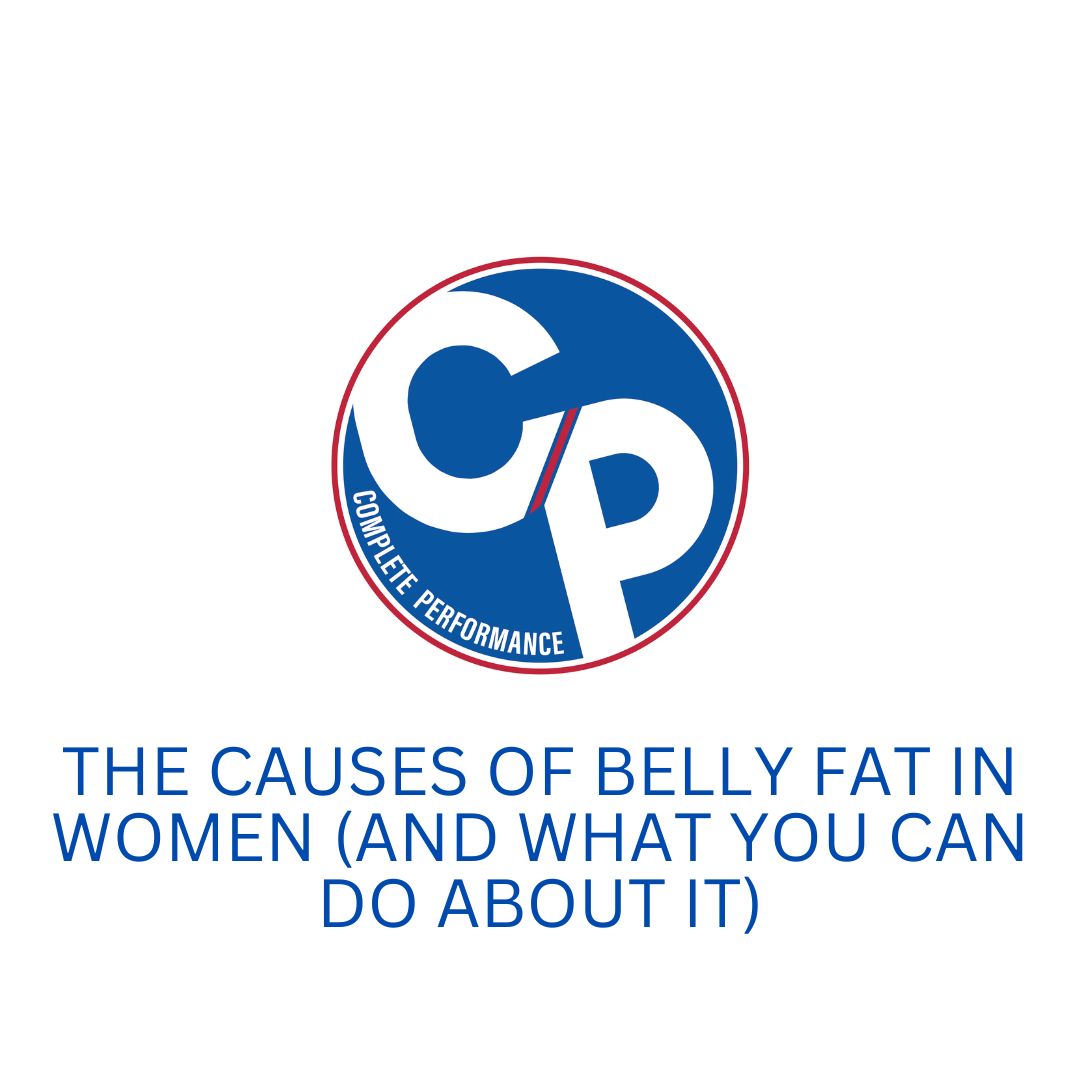Belly fat can be one of the most frustrating areas for women in their mid-30s to mid-60s to manage. If you feel like you’re doing everything right, yet that stubborn belly fat won’t budge, you’re not alone. Many factors contribute to this, and while hormones often get blamed, they’re only part of the story. In reality, managing belly fat comes down to consistency in diet, regular resistance training, and effective stress management. Let’s break down why belly fat can increase during these years and how you can overcome it.
What Are the Main Causes of Belly Fat in Women?
Hormones: The Culprit, But Not the Whole Story
It’s true—hormones, especially for women approaching perimenopause or menopause, play a significant role in fat distribution. As estrogen levels drop, fat tends to shift from the hips and thighs to the abdominal area. The decrease in estrogen contributes to a slower metabolism, making it easier to gain weight and harder to lose it. However, focusing solely on hormones can be disempowering during your fat loss journey, as it might lead you to believe there’s little you can do. But that’s not the case!
While hormonal shifts may make belly fat more likely, they are just one factor in a much bigger fat loss picture. There are effective ways to work with these changes and reduce belly fat through lifestyle improvements.
Diet: Consistency is Key, Not Deprivation
One of the biggest contributors to belly fat is diet, and here’s the thing—it’s not about a quick-fix diet or starving yourself. It’s about consistently eating nutrient-dense foods that fuel your body while keeping your calorie intake in check. As you age, your body may need fewer calories, but it still needs high-quality nutrients (especially during fat loss).
Tips to reduce belly fat through diet:
- Focus on whole foods: Lean proteins, healthy fats, and fiber-rich carbohydrates (like vegetables and whole grains) should make up the majority of your meals.
- Avoid overly processed foods: These foods tend to be high in sugar, unhealthy fats, and refined carbs, all of which can contribute to belly fat.
- Watch portion sizes: As metabolism slows with age, being mindful of portions becomes crucial to avoid unnecessary weight gain.
- Don’t skip meals, especially breakfast: Skipping meals can lead to overeating later in the day and disrupt metabolism. A balanced breakfast helps keep hunger in check and sets the tone for the day.
Resistance Training: Your Secret Weapon
If cardio has been your go-to for fat loss, it’s time to rethink your strategy. While cardio can help burn calories, resistance training (strength training) is far more effective for long-term fat loss, especially around the belly. This is because muscle is metabolically active, meaning it burns more calories at rest. The more muscle mass you have, the more efficient your body becomes at burning fat—even while you’re sitting!
For women in their mid-30s to mid-60s, resistance training is especially important for maintaining muscle mass, which tends to decline with age. Less muscle means a slower metabolism, making it easier to gain fat. Resistance training combats this, not only helping to shed belly fat but also improving overall strength and mobility.
How to get started with resistance training:
- Aim for full-body workouts 2-3 times a week, targeting all major muscle groups.
- Incorporate compound exercises like squats, deadlifts, and push-ups, which work multiple muscles at once.
- Don’t be afraid to lift heavier weights! Building muscle requires challenging your body.
Stress: The Sneaky Belly Fat Contributor
We can’t talk about belly fat without mentioning stress. When you’re stressed, your body releases cortisol, a hormone that can cause fat to accumulate in the abdominal area. Chronic stress, whether from work, family, or other life demands, keeps cortisol levels elevated, making belly fat harder to lose.
Stress also has indirect effects—when you’re stressed, you might turn to comfort eating or struggle to find the motivation to exercise. These behaviors can quickly derail your efforts to lose belly fat.
Tips to manage stress:
- Exercise regularly —it’s a natural stress reliever!
- Practice mindfulness, gratitude, or meditation to calm your mind and reduce cortisol levels.
- Make sure you’re getting enough sleep—lack of sleep can spike cortisol and make you more likely to overeat.
- Find hobbies or activities that bring you joy and help you unwind.
Shedding Belly Fat Takes Time—Stay Consistent
While hormones, diet, resistance training, and stress management all play a role in belly fat, there’s no magic fix. Consistency is key. It takes time for your body to respond to changes, especially in your 30s, 40s, 50s, and beyond. The important thing is to stay patient and focus on making sustainable changes to keep body fat off for good.
By eating nutrient-dense foods, building muscle through resistance training, and managing stress, you can take control of belly fat and feel confident in your body. Keep in mind, it’s not just about looking good but also about maintaining long-term health and feeling strong as you age.
Takeaway: A Holistic Approach is the Best Way to Get Rid of Belly Fat in Women
Belly fat in women during midlife is influenced by a variety of factors, including hormones, diet, exercise, and stress. Rather than blaming hormones entirely, it’s more effective to take a holistic approach. Focus on consistently nourishing your body, making resistance training part of your routine, and managing stress to make lasting changes. You’ve got this!






